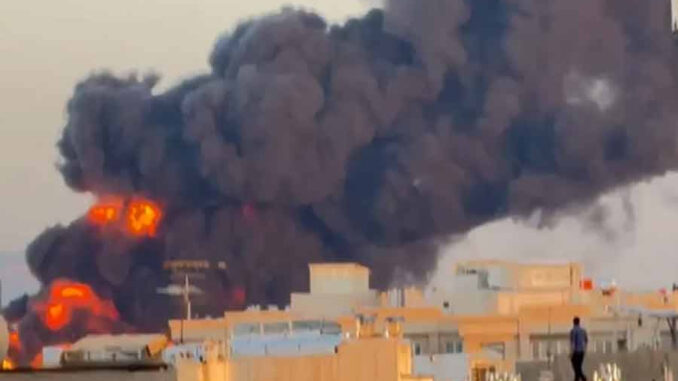
The Israel-Iran conflict has now entered its seventh consecutive day, with both sides intensifying military operations. On Thursday morning, Tehran claimed that Israeli forces once again attacked a key nuclear facility in the city of Khondab, specifically targeting a heavy water reactor used to cool nuclear cores.
However, Iranian authorities stated that the facility had already been evacuated, and therefore, there is no risk of radioactive leakage.
In a swift and direct response, Iran launched a missile strike on a hospital in the southern Israeli city of Be’er Sheva. According to CNN, a hospital spokesperson confirmed the incident and advised citizens not to visit the hospital until further notice. The extent of damage and injuries is still being assessed.
Will the US Join the War?
As the situation grows more volatile, all eyes are now on the United States. Former President Donald Trump was asked on Wednesday whether the US would order a military strike on Iran in response to recent events.
Trump responded ambiguously, saying:
“I might. Or I might not. No one knows what I’m going to do.”
Sources close to the White House told CNN that Trump has begun reviewing military options, but is waiting to see whether Tehran rolls back its nuclear program before making a final decision.
⚠️ Key Developments So Far:
-
Israel allegedly targets Iran’s nuclear research site in Khondab
-
Iran retaliates by striking a hospital in Be’er Sheva, Israel
-
Tehran claims: no radiation leak expected
-
Trump yet to decide on US military involvement
-
Global concern rises over potential regional war in the Middle East
With escalating attacks and no signs of de-escalation, the Israel-Iran conflict is dangerously close to triggering a wider regional war. The international community is watching closely, especially the stance of the United States, which may shape the next phase of this ongoing crisis.

Leave a Reply